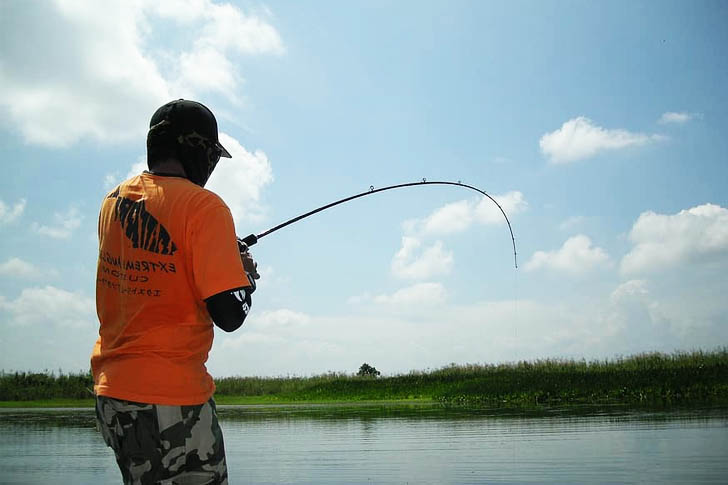The salmon act of the United Kingdom.

Fishing is a pastime and many people enjoy it. They would agree that activity is relaxing, though it comes with a degree of challenge. With patience and practice, you can catch all sorts of fish. However, if you happen to catch salmon while you’re in the United Kingdom, then you better pause and think about putting it back in the water.
The Salmon Act of 1986 was drafted by the Parliament of the UK and regulates everything related to the fishing and handling of salmon. What’s interesting is that among its provisions under section 32, there’s a line that goes: “Handling Salmon in Suspicious Circumstances.” It certainly is mysterious and just a little bit hilarious. Just how suspicious can a salmon be? Only the authorities know.
No billboards in Hawaii.

Hawaii is known for its majestic beauty and breathtaking sceneries. There are plenty of postcard-perfect vistas, which is also the reason why tourists regularly flock to it. With that said, there are a few things that can end up tainting its beauty. Among those things are terrible-looking billboards. This is the reason why they were banned in the first place.
It has been implemented for over a century now and it seems like they aren’t ready to lift it just yet. To preserve nature’s beauty, this isn’t a bad idea at all. You won’t find fast food, fashion, and insurance billboards in the state. The only ones allowed are directional landmarks and road signs are typically present within the state border.
Shirtless is not the way to go in Barcelona.

Beaches are a great place to show off those sculpted bodies that people worked on for months. It is also a great spot to relax in, where people can enjoy the sand and water. However, if you’re planning to go on a trip to the beautiful beaches of Barcelona, it is advisable to never go outside the beach with your shirt off or else, be ready to face the consequences.
You’re only allowed to go “topless” within the beach premises. However, this all changes when you go beyond the beach line. Making this mistake is costly—expect a fine of cost €260 or roughly $300 charged to your credit card. There’s nothing wrong with body confidence, but don’t go overboard with it!
Don’t swear in the United Arab Emirates. Ever!

The United Arab Emirates is one of the richest countries in the Middle East, thanks to its rich gas and oil industries. Now if you’re going to take your family on a vacation to this beautiful country or perhaps planning a trip with your closest buddies, be mindful of what comes out of our mouth. What do we mean by that? While you’re in the UAE, do not use the F-word under any circumstances.
Swearing, cursing, or even doing indecent things like flashing your middle fingers while in public can spell trouble. According to Article 373 of the UAE Penal Code, these acts can get you to put behind bars for a year and/or pay a fine of up to 10,000 Dirham or around $2,700.
Russia and lacy undergarments don’t mix well.

If your partner is planning a romantic honeymoon in Russia, make sure that lacy underwear is not part of your luggage. Why do you ask? This type of lingerie is not allowed by the law. However, it wasn’t made for modesty’s sake, but primarily for safety reasons.
This is because of a safety regulation that requires all clothing that’s in contact with the skin directly to have at least 6% cotton and that means the lace is a no-go in Russia. Better save that credit card balance for an alternative or face the consequences. The same rule applies to other countries such as Kazakhstan and Belarus so do keep that in mind. Now we’re sure you’re wondering the same thing: how will the authorities know that people have them on?
You now need to get a permit before reincarnating.

China’s State Administration for Religious Affair, for those unfamiliar, is basically a governing body that’s in charge of all religious aspects in the country. They are also the people implementing State Religious Affairs Bureau Order No. 5, which is basically an ordinance that prohibits people from reincarnating unless they have the right permit for it. Yes, you saw that right, they are in charge of giving people the permission to reincarnate.
How does it work? An individual must submit a request through a Tibetan Buddhist monastery. Only the registered monasteries can participate, however, and are only able to nominate one of their own. Officially registered monks count. They’ll get approved only if their reincarnation will provide great impact. We wonder if they need lawyers for this process.
No killing of Bigfoot in Canada.

Nature has always been full of different wonders and there will always be things about it that are beyond the realms of logic and understanding. Perhaps the biggest mystery in North America’s history would be the continuous sightings of the rare Bigfoot, also known as Sasquatch.
Whether real or mere myth, the country seeks to protect this yet unknown lifeform. For this, the leaders of British Columbia passed a law that would keep hunters from preying on Bigfoot. Insurance? Canada has something better and it applies to every creature, too. The rule states that it is illegal to hunt or kill any form of wildlife without the necessary license. Now, should anyone find and take Bigfoot’s life, regardless of the circumstances, they’ll need to pay a $250,000 fine.
Washington wants to protect its Bigfoot, too.

In a way, given Canada and Washington’s proximity, it makes sense that Washington follows suit and seeks to protect Bigfoot as well. Sure, no one knows if his existence is fact or fiction, but isn’t it better to be safe than sorry? This is why we’re glad that they followed their neighbor’s footsteps when it comes to dealing with the creature.
In Skamania County, Washington, a place considered to be a safe haven, they established an ordinance that would protect the legendary Bigfoot. It states that killing an animal that resembles an ape-like figure would get you a year behind bars and would be fined $1,000. This ordinance was established in 1984 and those that pushed for it deserve much credit.
Peeing is not allowed in the oceans of Portugal.

We all know the unwritten rule of not peeing in the pool. It is both unpleasant and unsanitary for everyone else using it. However, the country of Portugal took this approach and scaled it up to a pretty extreme degree. It’s an actively implemented law and they constantly remind both locals and tourists not to take it lightly.
What is it? Simple. You are not allowed to in the ocean because doing so counts as a criminal offense. We totally understand why they would go to such lengths. Portugal is a beautiful country with stunning oceans—of course, they would want to protect it. If the law can be used for this purpose, why not? So mischievous and unruly holiday-goers beware! Just act with decency and pee where appropriate.
No bear wrestling in South Africa.

You have to ask yourself—who would dare go up against one of nature’s most fearsome predators? No insurance would cover this and it will likely result in a victory—that of the bear’s. So why does South Africa even need this rule? Well, it wasn’t made to protect humans. It’s been put in place to keep the wildlife safe. Humans can be full of hubris, after all, and in the process end up harming nature.
So if you’re planning on visiting South Africa, keep this rule in mind. If it’s an action that you want, there are plenty of other places in the world that can provide that. Boxing in Thailand? Sumo wrestling in Japan? Leave Mother Nature and her creatures as they are.
